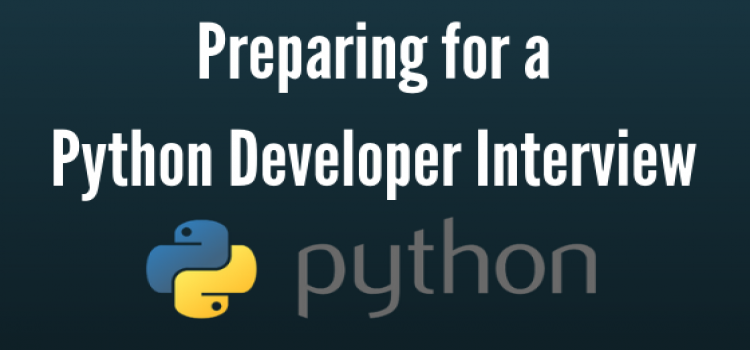How to crack Python Interviews

Python is a high level and general-purpose interpreted interactive object-oriented programming language. It was introduced by Guido van Rossum (Dutch Computer programmer) in the year 1991. Python is a language which strongly emphasizes on code simplicity and reliability which ensures that programmers can develop a number of applications. In general, Python is a multi-paradigm programming language, which allows users to code in several different programming styles. Additionally, Python can be easily integrated with C/C++ CORBA, ActiveX, and Java and is widely used for scripting in Game menu applications.
In this blog post, we are discussing advanced Python interview questions to help you to boost up your confidence for the upcoming Python Interview.
Tips and Tricks to crack Python Interview questions
1. Study common Python Interview concepts
A large percentage of Python Interview questions are featured with core concepts and algorithms. Interviewer’s always done in-depth analysis in order to judge the concepts and basic fundamentals of Python programming language. About 60% of the candidates fail every year in interviews at companies due to weak core technical concepts. It is quite important for them to have a brief and deepen knowledge of core concepts of the programming language.
Some of the core concepts of Python programming language
- Object-oriented concepts (Objects, classes, interfaces, data-binding, data-hiding, abstraction, encapsulation, polymorphism, inheritance, file handing, etc.)s
- Linked lists
- Hash tables
- Breath-first search and Depth-first search
- 2D arrays
- Big-0 analysis (Worst and best case analysis)
- IDLE
- Scope of Python language (Bioinformatics, Unix, Web logic, Web sphere, CGI, Jython-Servlets, etc.)
- Operators, data-types, variables, strings and conditional statements in Python
- Installation processes of Python
2. Practice (Practicing Interview stress management)
Candidates can get much better knowledge and experience at interviewing by practicing to answer questions. It is quite realistic that interviews are stressful and candidate loses their actual senses and thinking ability while sitting in front of the interviewer. If you really struggling with stress, it is recommended to you that to jumpstart the process by practicing interview stress.
3. Knowledge about the function with proper description
In today’s scenario, companies want candidates who are excited about their mission and vision. It is important for the candidate to have proper knowledge about the methods and function used in Python programming language. Some of the core function used in Python with description
- Cmp(list1, list2)- Compare elements of both lists
- Len(list)- Access length of the list
- Max(List)- Return an item from the list with maximum value
- Min(list)- Returns an item from the list with a minimum value
- List(seq)- Converts a tuple into the list
4. Technical and programming skills
In general, technical skills are the knowledge and abilities that are needed to accomplish mathematical, and programming or other tasks. It is important for the candidate to have a grip on Python syntax and semantics. With the help of technical and programming skills candidates can work smarter, become more confident, save lots of time, etc.
5. Logical skills & Analytical skills
In order to crack the programming interview questions, a candidate must have logical and analytical skills so that they can solve the problem or situation given by the interviewer within a short period of time. Logical and analytical skills involve left-brain thinking, smart goals, right-brain thinking, information overload, managerial thinking, using information, etc.
Conclusion
In this blog post, some tips to crack the Python interview questions and answers are discussed that will be helping you in revising mostly asked core interview questions. I hope we have provided the Best Interview Questions of Python language that helped you to clear the concepts and prepare you for professional interviews.
